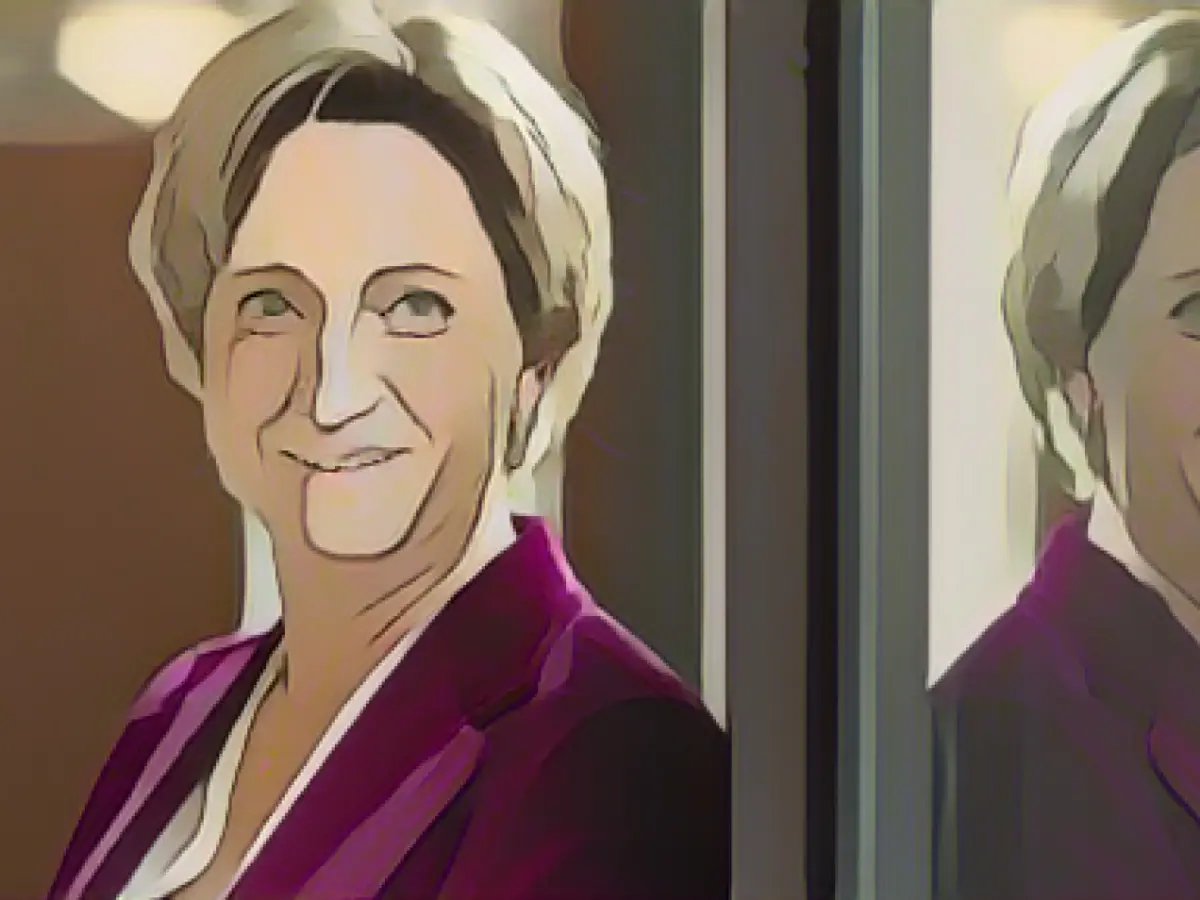Household - Hoffmeister-Kraut: Federal government fails to provide answers
Economics Minister Nicole Hoffmeister-Kraut (CDU) is missing a stimulus for the economy following the agreement reached by the traffic light coalition in the budget dispute. "The federal government still does not have an answer as to how it intends to boost the economy as a whole," Hoffmeister-Kraut told the German Press Agency on Thursday. However, a fundamental change of course is necessary.
The issue of competitiveness must be brought into focus. Better framework conditions are needed for investment and innovation, especially in Germany and Baden-Württemberg. The only consolation is that the Growth Opportunities Act has not been squelched any further. "The law is the right signal, but in its current form it is no more than a drop in the ocean," she said.
She continued: "The fact is that the economic engine in Germany is sputtering badly. In terms of economic growth, Germany is bringing up the rear among comparable countries this year and is likely to do so again next year. The causes are manifold. But there are some home-made factors. "These include high energy costs, which will increase once again as a result of the agreement reached in the dispute over the 2024 federal budget and the increase in the CO2 tax," she said.
Hoffmeister-Kraut also cited the high tax and duty burden and bureaucracy as further reasons. "The fact that the EU is now adopting a supply chain directive at this very time, which imposes further restrictions on companies, is a completely wrong signal."
The crisis is mainly manifesting itself in industry, i.e. in the core area of the export-oriented south-west economy. "We are seeing almost daily that large companies based in the automotive sector want to cut jobs," she said. Especially against the backdrop of the end of the combustion engine, this transformation must be accompanied in the best possible way. "Billions in funding for individual projects - especially in the east of the country - are not enough."
Following the historic budget ruling by the Federal Constitutional Court, the coalition government agreed on Wednesday how it intends to close the billion-euro gap in the 2024 federal budget. Savings and cuts are planned, which will also affect consumers in terms of electricity, gas and petrol prices. Savings are to be made primarily by abolishing climate-damaging subsidies, making cuts to the budgets of individual departments and reducing federal subsidies.
Read also:
- A clan member is punished here
- Traffic lawyer warns: Don't talk to the police!
- Will he be convicted as Jutta's murderer after 37 years?
- He also wanted to kill his cousin
- The Traffic light coalition, formed by the SPD, Greens, and FDP, is currently dealing with a budget dispute in Germany, which has impacted the country's economic policy.
- The budget dispute has led to a lack of stimulus for the economy, as stated by Economics Minister Nicole Hoffmeister-Kraut (CDU), highlighting the need for a change of course.
- Hoffmeister-Kraut emphasized the importance of bringing the issue of competitiveness into focus, particularly for investment and innovation in places like Germany and Baden-Württemberg.
- She pointed out that Germany's economic growth is lagging behind comparable countries due to reasons including high energy costs and taxes, exacerbated by the CO2 tax increase and EU supply chain directive.
- The crisis in Germany's economy is primarily affecting industry, with large companies in the automotive sector considering job cuts in Stuttgart and other parts of Baden-Württemberg.
- In an attempt to close the billion-euro gap in the 2024 federal budget, the coalition government has agreed to savings and cuts, which include abolishing climate-damaging subsidies, making department budget cuts, and reducing federal subsidies.
- These savings and cuts will impact consumers in terms of energy, gas, and petrol prices, as reported by the German Press Agency, further creating challenges for households in managing their finances.
Source: www.stern.de








